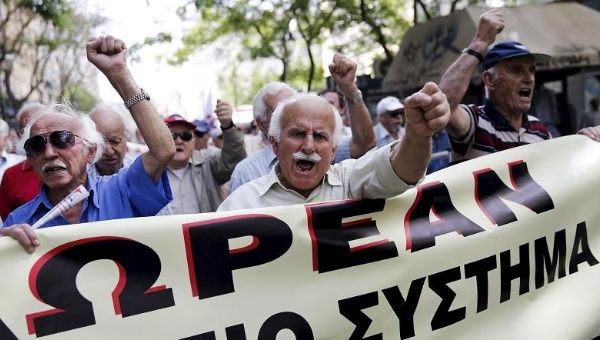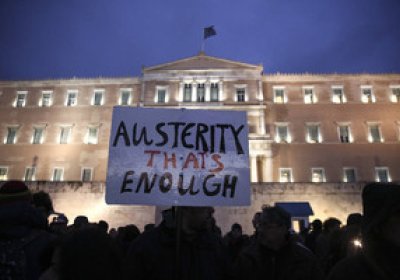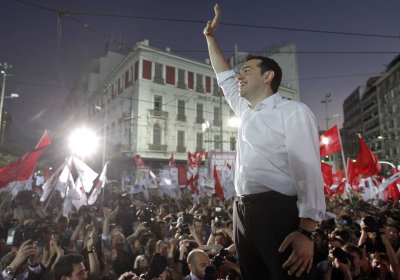 Thousands protest in Athens against austerity and in support of the SYRIZA government, June 17.
Thousands of Greek people took to the streets of Athens on June 17 to reject austerity measures and support the SYRIZA-led government, TeleSUR English said that day.
Thousands protest in Athens against austerity and in support of the SYRIZA government, June 17.
Thousands of Greek people took to the streets of Athens on June 17 to reject austerity measures and support the SYRIZA-led government, TeleSUR English said that day.
Greece
 Thousands protest in Athens against austerity and in support of the SYRIZA government, June 17.
Thousands of Greek people took to the streets of Athens on June 17 to reject austerity measures and support the SYRIZA-led government, TeleSUR English said that day.
Thousands protest in Athens against austerity and in support of the SYRIZA government, June 17.
Thousands of Greek people took to the streets of Athens on June 17 to reject austerity measures and support the SYRIZA-led government, TeleSUR English said that day.
 Greek pensioners joined the march for a better healthcare in Athens.
Greek pensioners joined the march for a better healthcare in Athens.
About 800 refugees were drowned in the Mediterranean on April 18 when a boat carrying them from Libya, and trying to reach the south of Italy, capsized. Just three days earlier, more than 400 people drowned when another boat on the same route sank. Refugee deaths in the Mediterranean are rising sharply. “According to the UN and the International Organisation for Migration, 1,776 people are dead or missing so far this year, compared with 56 for the same period last year,” the April 24 Guardian reported.
“A high-ranking official close to Greek Prime Minister Alexis Tsipras said the Greek government is not planning to give in to its creditors’ pressures and go against the program they had promised to the Greek people who brought them to power,” GreekReporter.com said on April 16. The comment came amid rising tensions between Greece's SYRIZA-led anti-austerity government and its creditors — the European Central Bank, the European Commission and the International Monetary Fund (IMF).
- Previous page
- Page 6
- Next page








